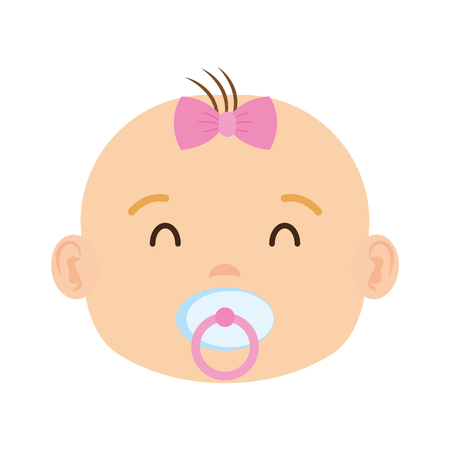Understanding the Baby Blues in the UK
The arrival of a new baby is often seen as a time of joy and celebration, but for many British mums, the postnatal period can also bring unexpected emotional ups and downs. The baby blues is a term widely used across the UK to describe a brief episode of mood swings, tearfulness, irritability, and anxiety that typically begins within a few days after childbirth. It’s far more common than many might think—statistics suggest that up to 80% of new mums in Britain experience some form of baby blues in the first week or two following delivery. Despite its prevalence, there are still many myths and misunderstandings surrounding this natural response. Some believe it’s a sign of weakness or poor parenting, while others confuse it with more serious conditions like postnatal depression. In reality, the baby blues are usually temporary and linked to hormonal shifts, physical exhaustion, and the overwhelming changes that come with caring for a newborn. Recognising that these feelings are both normal and shared by countless mothers throughout the UK can be reassuring. Dispelling the stigma around postnatal emotions is crucial; talking openly about mental wellbeing helps ensure that new mums feel supported rather than isolated during this challenging transition.
Common Emotional Challenges and Symptoms
The postnatal period in the UK is often described as a whirlwind of emotions, ranging from overwhelming joy to unexpected lows. While every parent’s journey is unique, there are some common emotional ups and downs that many new mothers experience. Understanding these typical challenges can help normalise the experience and encourage seeking support when needed.
Typical Emotional Experiences After Childbirth
| Emotional Challenge | Common Symptoms | Cultural Attitudes in the UK |
|---|---|---|
| Baby Blues | Tearfulness, irritability, mood swings, anxiety, feeling overwhelmed (usually lasts a few days to two weeks) | Widely recognised as normal; openly discussed among health visitors and mums’ groups; advice is to seek reassurance and rest |
| Postnatal Depression | Persistent sadness, loss of interest, sleep issues, feelings of guilt or worthlessness (lasting longer than two weeks) | Increasingly acknowledged and destigmatised; encouraged to discuss symptoms with GPs or health professionals without embarrassment |
| Anxiety | Constant worry about baby’s wellbeing, racing thoughts, physical symptoms like palpitations or restlessness | Often underreported due to British “stiff upper lip” mentality but growing awareness encourages speaking out |
| Loneliness/Isolation | Feeling cut off from friends, family, or usual activities; longing for adult conversation or support | Mums’ networks and community groups play a big role in combating isolation; online forums are popular sources of support |
The British Approach: Expressing Emotions Postnatally
In the UK, traditional cultural norms have sometimes encouraged parents—especially mothers—to put on a brave face and soldier on. The “keep calm and carry on” ethos still persists in some circles, leading to reluctance in expressing vulnerability. However, attitudes are gradually shifting. Health services such as the NHS actively promote honest conversations about emotional wellbeing during postnatal check-ups. Peer support through NCT classes and local baby groups also helps normalise discussions around mental health.
The Role of Support Networks
British parents benefit from a range of support options including midwives, health visitors, and charitable organisations. These resources provide both practical advice and emotional reassurance, making it easier for new mums and dads to voice their struggles without fear of judgement.
Key Takeaway:
If you’re experiencing emotional highs and lows after your baby arrives, remember that you’re not alone—and talking about it is not only acceptable but encouraged across the UK today.

3. Support Networks and NHS Resources
For new parents navigating the postnatal period in Britain, knowing where to turn for support can make a significant difference. The UK has a robust framework of mental health resources, both through the NHS and within local communities, to help mothers experiencing the baby blues or more persistent emotional challenges.
Highlighting Available Mental Health Support
The NHS offers a range of mental health services tailored for postnatal care. Health visitors are often the first point of contact; they routinely check in with new mums and can provide initial advice or refer you to specialist support if needed. Many GP surgeries also have dedicated perinatal mental health practitioners who understand the unique pressures of early parenthood.
Local Community Groups
Beyond formal healthcare, there is a wealth of community-based support available across the UK. Local children’s centres, NCT (National Childbirth Trust) groups, and peer-led mother and baby meet-ups offer welcoming spaces to share experiences and reduce feelings of isolation. These groups are not just about socialising—they often feature talks from mental health professionals or workshops on coping strategies, all delivered in a friendly, non-judgemental environment.
Accessing NHS Postnatal Services
If you feel you need help, reaching out is straightforward. Start by speaking to your health visitor or GP—they can guide you through the process of accessing talking therapies or specialist perinatal mental health teams if necessary. For urgent support, NHS 111 is available 24/7, and organisations like Mind or PANDAS Foundation provide helplines and online resources specifically for postnatal mental wellbeing.
Remember, seeking support is not a sign of weakness but a step towards feeling better. The British healthcare system is set up to provide confidential, compassionate care—so don’t hesitate to make use of these invaluable resources during this challenging yet rewarding time.
4. Self-care Tips for British Mums
Self-care is crucial for navigating the baby blues, and British mums have a range of practical and culturally resonant strategies to support their emotional wellbeing. Prioritising rest, maintaining balanced nutrition, and engaging in comforting local traditions can make a significant difference during the postnatal period.
Prioritising Rest and Nutrition
Getting enough rest is often easier said than done with a newborn, but making sleep a priority whenever possible is vital. British mums can embrace the classic advice of “sleep when the baby sleeps,” even if that means letting some household chores wait. Nutrition also plays a key role in mood regulation. Focusing on regular meals with wholesome ingredients—think hearty porridge, wholegrain toast, or a warming stew—can help maintain energy levels and stabilise emotions.
Embracing British Comfort Activities
Taking comfort in familiar routines and traditions is a soothing way to recharge. Enjoying a proper cup of tea (perhaps with a digestive biscuit), curling up with a favourite book, or taking a gentle stroll in the local park are all simple pleasures that offer both relaxation and a sense of normalcy. Many find solace in the timeless ritual of afternoon tea, either solo or with loved ones, as it provides an opportunity for quiet reflection and connection.
Practical Self-Care Ideas Table
| Self-care Tip | Cultural Connection |
|---|---|
| Rest when baby sleeps | Common advice among UK health visitors |
| Nourishing meals (e.g., porridge, stew) | Traditional British comfort foods |
| A cup of tea break | A cherished UK daily ritual |
| Reading or listening to audiobooks | Popular British pastime for relaxation |
| Parks & green space walks | Accessible across British towns & cities |
Connecting with Other Mums
Peer support is invaluable during this time. Many communities across the UK offer new mum groups at local libraries, community centres, or through the NHS. Engaging with other parents—whether online or face-to-face—provides reassurance, friendship, and practical tips from those going through similar experiences.
Top Peer Support Options for UK Mums:
- NCT (National Childbirth Trust) coffee mornings
- Bumps & Babies groups at children’s centres
- Online forums like Mumsnet and Netmums
The combination of rest, nutrition, cultural comforts, and peer support creates a well-rounded foundation for emotional wellbeing during the postnatal period. Remember: looking after yourself isn’t selfish—it’s essential for both you and your baby’s happiness.
5. When to Seek Professional Help
While it’s completely normal to experience the baby blues in the early days after giving birth, it’s important for new parents across the UK to recognise when these feelings may be a sign of something more serious, such as postnatal depression (PND). The key difference lies in both the duration and intensity of your emotions. If feelings of sadness, anxiety, or hopelessness persist beyond two weeks, or if they intensify to the point that daily life becomes difficult, it’s time to consider seeking support.
Spotting the Signs: Beyond Baby Blues
Some warning signs that may indicate a need for professional help include:
- Constant low mood or tearfulness lasting more than two weeks
- Difficulty bonding with your baby
- Loss of interest in things you usually enjoy
- Persistent fatigue, insomnia, or changes in appetite
- Feelings of worthlessness or guilt
- Thoughts of self-harm or harming your baby (if you have these thoughts, seek immediate help)
Trusted Support Routes in the UK
The UK offers several trusted pathways for getting professional support with postnatal mental health. Your first port of call is usually your GP or health visitor – both are trained to listen without judgement and can provide referrals to mental health services if needed. For urgent concerns, NHS 111 offers round-the-clock advice, and in crisis situations, you should not hesitate to contact emergency services by calling 999.
Specialist Services and Helplines
Charities like Mind, PANDAS Foundation, and the Association for Postnatal Illness offer confidential helplines and online resources tailored for new parents. Many local NHS trusts also run specialist perinatal mental health teams who understand the unique challenges faced by families during the postnatal period.
Remember: reaching out for help is a sign of strength, not weakness. Early intervention can make all the difference for your emotional wellbeing and your family’s future happiness.
6. The Role of Partners, Family, and Friends
Support from loved ones is crucial for new mums navigating the postnatal period, especially when facing the baby blues. In the UK, there is a growing recognition of how partners, relatives, and friends can positively impact a mothers emotional wellbeing. British families are increasingly encouraged to be hands-on and proactive in their support. Partners, whether husbands or civil partners, are urged to share parenting duties, from night feeds to nappy changes. It’s not just about practical help—being emotionally available and patient goes a long way in making a new mum feel valued and understood.
Advice for Partners
If you’re a partner supporting a new mum, remember that your presence and empathy matter most. Listen without judgement, offer encouragement, and take initiative with household chores. British health visitors often suggest setting aside time for each other—even if it’s just sharing a cup of tea while the baby naps—to maintain connection during this transformative period.
Getting Relatives Involved
Involving grandparents, siblings, or even close cousins can create a network of care around both mum and baby. In many British families, it’s customary for relatives to pop round with home-cooked meals or lend a hand with older children. However, be mindful of boundaries: always ask what’s helpful rather than assuming. Sometimes, simply offering to do the shopping or walk the dog can relieve a great deal of pressure.
Friends Can Make a Difference
Friends often play an unsung role in postnatal recovery. In Britain, a thoughtful gesture like dropping off biscuits or sending a supportive message can brighten a new mum’s day. If you’re close to someone who’s just had a baby, check in regularly but respect her need for rest and privacy. Suggest gentle outings—perhaps a stroll in the park or visiting a local café—when she feels ready.
Building a Supportive Environment
The key is open communication: ask how you can help and listen carefully to the answer. The British approach values both independence and community spirit; striking this balance will ensure new mothers feel supported without being overwhelmed. Remember, even small acts of kindness can make all the difference during this vulnerable time.


